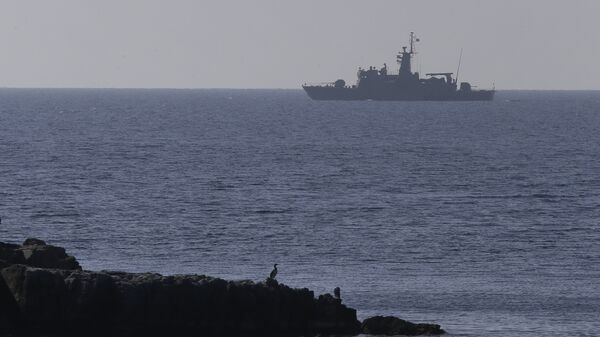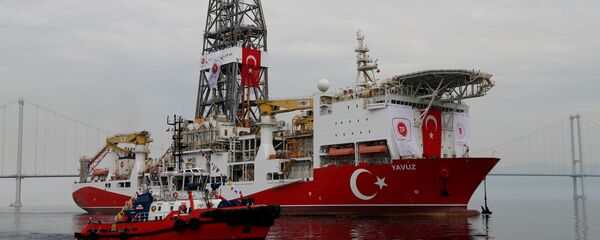Greece's Foreign Ministry has demanded that Turkey immediately halt its "illegal" drilling activities in the Eastern Mediterranean, warning that Athens will defend itself if necessary.
"Greece will not accept any blackmail. It will defend its sovereign rights. We call on Turkey to immediately end its illegal actions that undermine peace and security in the region," the ministry said in a statement Monday.
Referring to Turkey's plans as a "new serious escalation," the ministry suggested that they "exposed" Ankara's "destabilising role".
The warning comes following a notice by the Turkish Navy that the Turkish surveying ship Oruc Reis would be carrying out seismic survey activity in a disputed zone of the eastern Mediterranean Sea south of Antalya and west of Cyprus over the next two week period. Turkish Energy Minister Fatih Donmez has said that the ship has already reached its destination, with work to proceed Monday and run until August 23.
Greek maritime authorities issued a response, saying that permission for research was issued by an "unauthorised station" and referred to the drilling plans as "unauthorised and illegal activity in an area that overlaps the Greek continental shelf". A Greek NAVTEX (international maritime navigational telex system) message calls on mariners to disregard the Turkish NAVTEX message on the start of drilling.
Greek Prime Minister Kyriakos Mitsotakis convened the national security council on Monday to discuss Turkey's actions, with the body, including the ministers of defence and foreign affairs, expected to address Athens' next move. Mitsotakis's office had earlier indicated that the prime minister had spoken to European Council President Charles Michel on the matter, and would be speaking to NATO chief Jens Stoltenberg.
Minister of State George Gerapetritis told TV ERT that the country's military is in a state of "operational readiness", and warned that "most of the fleet is ready to be deployed wherever necessary".
Ankara Rejects Complaint
Turkish Foreign Ministry spokesman Hami Aksoy rejected Greece's complaint later Monday, saying that Greece's actions, specifically its "pirate agreement with Egypt" last week on the creation of an exclusive economic zone, violated Ankara's own continental shelf rights.
"Greece demonstrated by its pirate agreement with Egypt on August 6 that it was not sincere and honest about the dialogue. This agreement violated the right of our country and Libya to the continental shelf in the eastern Mediterranean. After that, our vessel Oruc Reis started the previously planned seismic research activity. There is no legal basis for Greece to oppose it," Aksoy said.
Greek-Egyptian Maritime Deal Sours Talks
Erdogan dismissed the deal as null and void, saying it "has no value". Greek Foreign Minister Nikos Dendias said the agreement "respects all concepts of international law and the Law of the Sea".
In his comments Monday, Aksoy said Turkey's "gesture of goodwill...to give diplomacy a chance was not reciprocated," and that it was Athens, not Ankara, that is responsible for increasing tensions in the Mediterranean.
Turkey and the Ankara-backed Libyan government in Tripoli signed their own contentious maritime boundaries deal late last year, with the Egyptian government calling the agreement "illegal," and Athens suggesting that it was an "absurd" document given the presence of the Greek island of Crete between Libya and Turkey.
In a related development, in January 2020 Greece joined Cyprus and Israel in plans to construct a major pipeline from the eastern Mediterranean to Europe. Turkey has expressed opposition to the project, fearing it may affect its own energy pipelines with Azerbaijan and Russia.
The Greek-Turkish Mediterranean maritime delimitation dispute is one of two major maritime disputes between the two NATO allies, with the other being the long-standing territorial dispute in the Aegean Sea, which has occasionally broken out into aerial dogfights and naval skirmishes, prompting the US and NATO to intervene to stop the situation from escalating out of control.





